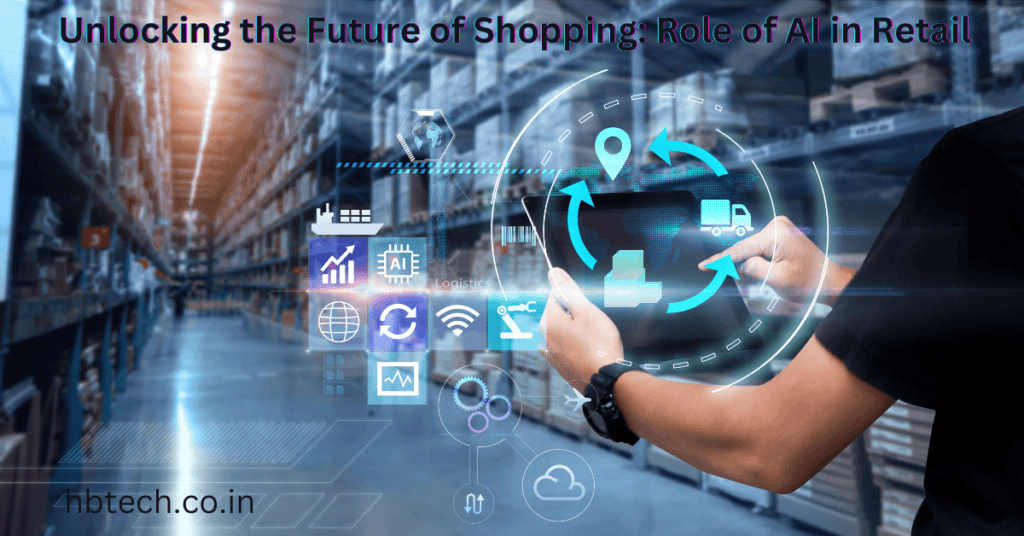In today’s digital age, artificial intelligence (AI) is revolutionizing the retail landscape . From enhancing customer experiences to streamlining back-end operations, AI is empowering retailers to stay competitive in a fast-paced market. Let ’s explore how AI is transforming the industry, focusing on seven key trends that are shaping the future of retail.
Personalized Shopping
Gone are the days of one-size-fits -all retail experiences. AI enables retailers to provide tailored shopping experiences by analyzing customer data and behavior. Recommendation engines powered by AI suggest products that match individual preferences, boosting sales and customer satisfaction . For instance, e-commerce platforms like Amazon use AI to recommend items based on browsing history and purchase patterns, creating a personalized journey for every shopper.
Visual Search
AI-driven visual search is changing the way customers discover products. With this technology , shoppers can upload images of items they like, and the system identifies similar products available for purchase. Visual search bridges the gap between inspiration and acquisition, making it a game-changer for fashion and home décor industries. Retailers like Zara and ASOS are leveraging visual search to enhance their digital storefronts and captivate tech–savvy customers.
Inventory Optimization
Managing inventory efficiently is a critical challenge in retail. AI helps retailers strike the perfect balance by forecasting demand with precision. Machine learning algorithms analyze historical sales data, market trends, and external factors like weather to predict inventory needs. This ensures that popular items are always in stock while minimizing overstock situations. Walmart, for example, uses AI to optimize its inventory levels and reduce waste.
AI Chatbots
Customer service is the backbone of retail success, and AI chatbots are elevating this experience. These virtual assistants provide 24/7 support, answer queries, assist in product selection. and even handle complaints. Unlike human agents, AI chatbots can simultaneously interact with thousands of customers, ensuring quick and efficient service Brands like Sephora and H&M are using AI-powered chatbots to engage with customers on their websites and social media platforms.
Predictive Analytics
AI’s ability to predict future trends is invaluable in retail. Predictive analytics helps retailers anticipate customer needs, identify emerging trends , and optimize marketing campaigns. By analyzing vast amounts of data, AI uncovers patterns that might go unnoticed by human analysts. Retailers like Target use predictive analytics to enhance customer targeting, ensuring their promotional efforts hit the mark.
Dynamic Pricing
Price optimization is another area where AI shines. Dynamic pricing allows retailers to adjust prices in real-time based on demand, competitor pricing, and other market factors. This strategy ensures competitiveness while maximizing profits. E -commerce giants like Amazon have perfected dynamic pricing, using AI algorithms to update prices multiple times a day, ensuring they remain attractive to customers.
Smart Shelves
AI-powered smart shelves are transforming physical stores. Equipped with sensors and cameras, these shelves monitor inventory levels, detect misplaced items, and even analyze customer interactions. By automating these processes, retailers save time and reduce operational errors. For example, Kroger uses smart shelves to display digital pricing and promotions, creating a seamless shopping experience for customers.
Road Ahead
AI in retail is not just a trend—it ’s the future. By embracing technologies like personalized shopping, visual search, and predictive analytics, retailers can enhance customer experiences and streamline operations. As AI continues to evolve, its role in retail will only grow, offering new opportunities for innovation and growth.
Whether it’s through AI chatbots providing instant assistance or dynamic pricing strategies driving revenue, the integration of AI is reshaping retail into a more efficient and customer-centric industry . The businesses that embrace these advancements will undoubtedly lead the way in this exciting transformation.
Frequently Asked Questions(FAQs)
What is AI’s role in personalized shopping?
AI analyzes customer data, such as browsing history and purchase patterns, to recommend products tailored to individual preferences. This makes shopping experiences more personalized and satisfying.
How does visual search work in retail?
Visual search allows customers to upload images of products they like, and AI systems identify similar items available for purchase. This feature is commonly used in fashion and home décor retail.
What are AI chatbots, and how do they benefit retailers?
AI chatbots are virtual assistants that handle customer queries, recommend products, and provide 24/7 support. They improve efficiency by managing multiple customer interactions simultaneously.
How is AI shaping the future of retail?
AI is transforming retail by enhancing personalization, optimizing operations, and introducing innovative tools like visual search and dynamic pricing. Retailers adopting AI are better positioned to meet customer demands and stay competitive.









